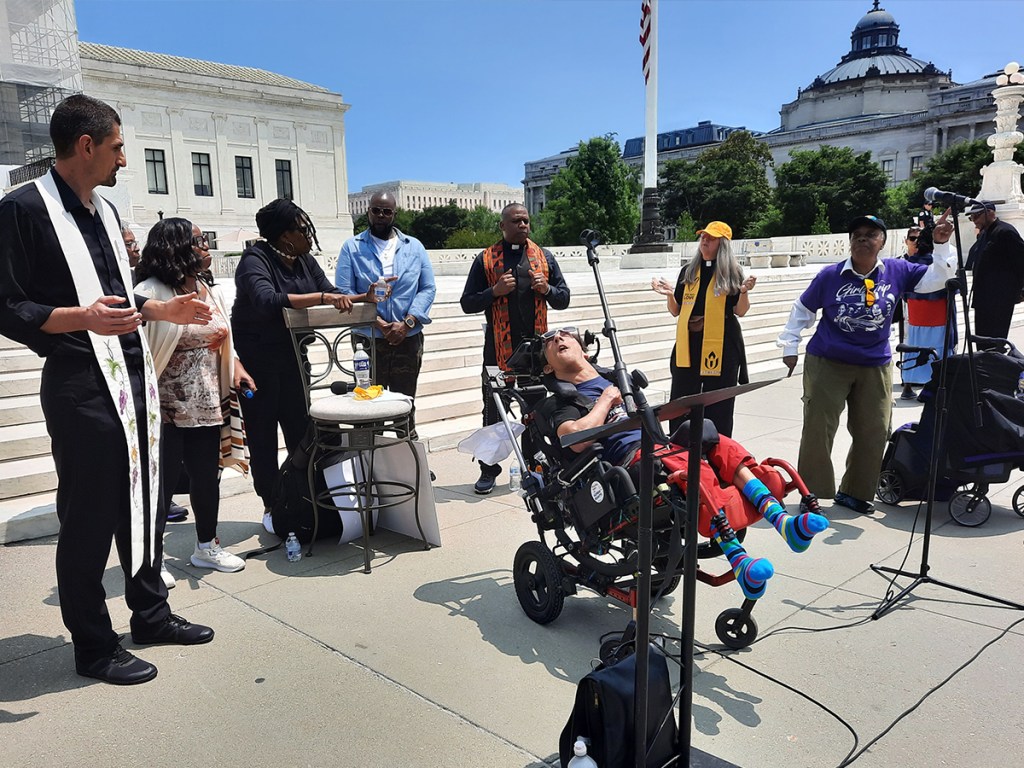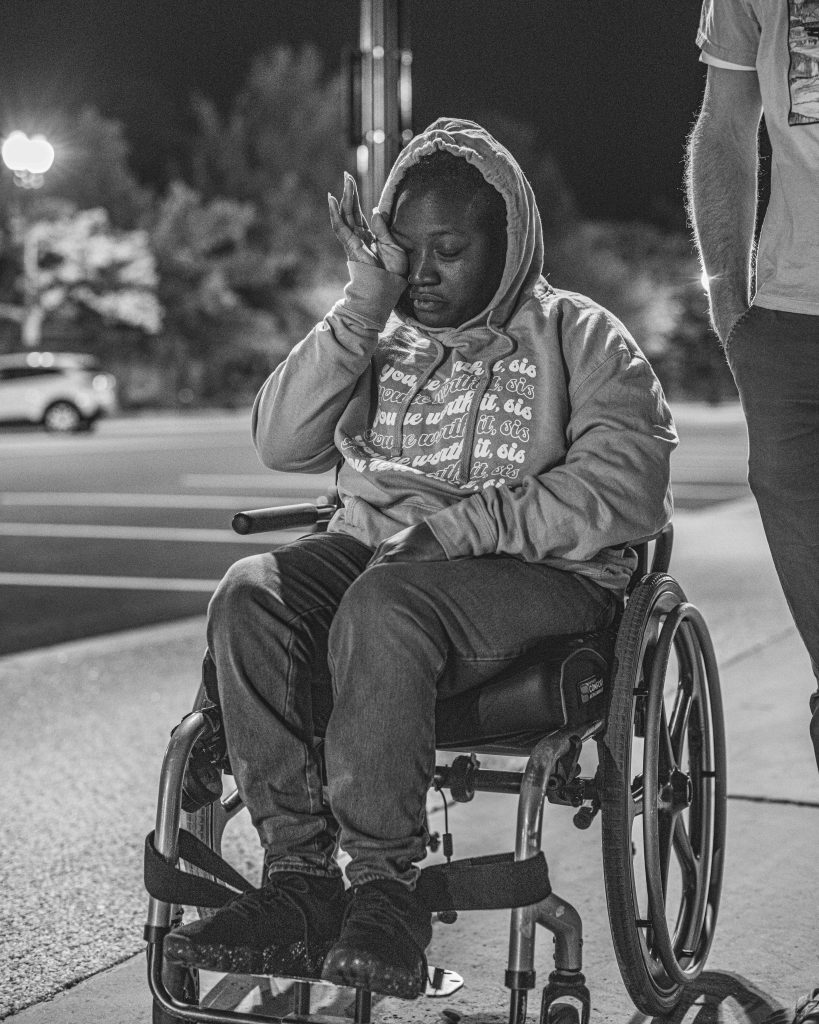When police officers approached Suvya Carroll in the U.S. Capitol Rotunda last Monday, her eyes were closed and her hands were raised in prayer. She was among protesters demonstrating against proposed cuts to Medicaid and SNAP benefits.
“I was asking the Lord to just open these people’s eyes who are trying to take this away and have them put themselves in our seats as disabled people,” Carroll says.
Carroll, a disability rights advocate who lives with cerebral palsy and uses a wheelchair, was among three Durham residents arrested during a June 10 Moral Monday demonstration led by Reverend Bishop William Barber II.
Lee Anderson, a music minister at Edenton Street Methodist Church, and Reverend Franklin Golden, who leads Durham Presbyterian Church were also arrested, as well as Barber and a handful of others.
Officers hesitated before placing zip ties on her wrists—the restraint had different implications than it would for someone who can walk, as it would prevent her from moving her wheelchair—but proceeded with the arrest.
Before the arrests, Carroll spoke to a large crowd outside the Capitol about how the cuts would personally impact her.
“When we have a procedure that needs to be done, how will that be paid for?” Carroll asked the crowd.
Carroll lives independently with a roommate in Durham. The cuts could force her to choose between basic necessities and depleting her savings. After paying monthly bills, she’s left with around $200 and, like 1.6 million North Carolinians, depends on SNAP benefits to buy groceries.
Sloan Meek—who is in the band Meek Squad with Carroll and Anderson, lives around the corner from Carroll, and traveled to D.C. with the group—also spoke to the crowd. Meek lives with cerebral palsy, blindness, and epilepsy.
“Without Medicaid support in my home and my community, I will be forced into a nursing home to spend the rest of my life in a hospital bed until I die,” Meek told the crowd. (About 3 million people in North Carolina rely on Medicaid for health insurance).

Meek depends on home support from Wendy Lincicome, a direct support professional who has been his friend and caregiver for more than 30 years. They live together in Durham’s North Street Community, an intentional community for people with and without disabilities.
“We have this great community that offers natural support. Most people don’t have that,” Lincicome says. “We are family now, but I do get paid to support him. My whole job is supported by Medicaid.”
House Republicans have proposed reducing federal funding for Medicaid and SNAP by nearly $1 trillion. Supporters of the proposed cuts claim that they won’t harm people with disabilities, but the group of Durham advocates say that’s misleading.
While people with disabilities would be exempt from new and expanded work requirements for Medicaid and SNAP, respectively, those requirements only account for a small fraction of cuts to the programs. The remaining cuts would create funding gaps for states, with home and community-based supports for people with disabilities likely among the first services eliminated.
“North Carolina is just now opening up the waiting list for Medicaid waiver services that help people in their homes and communities,” Meek tells the INDY. “After waiting over 10 years, most people are finding they now have the funding, but can’t find the staffing to help. How will that improve if there are these big cuts?”
“It feels like it’s basically people telling us, people with disabilities, that we don’t belong here,” Carroll says. “That we are not welcome here. They’re trying to shut us away, to–”
“To kill you off,” Lincicome says.
Carroll nods. “That’s what it feels like.”

Carroll, Anderson, and Golden spent two-and-a-half hours in detention after being arrested. They were released with citations for crowding, obstructing, or incommoding—a misdemeanor.
Carroll says the night before the demonstration, she began crying unexpectedly while walking near the Capitol with friends.
“I was like, ‘I don’t know where these tears are coming from, but I can’t believe that me and my friends will be here, telling our stories, and being able to speak up for what we need and advocate for what we need,’” Carroll says. “It was also my first time going to Washington, D.C. I think that that was another thing—I was like, ‘man, this is so cool.’”
